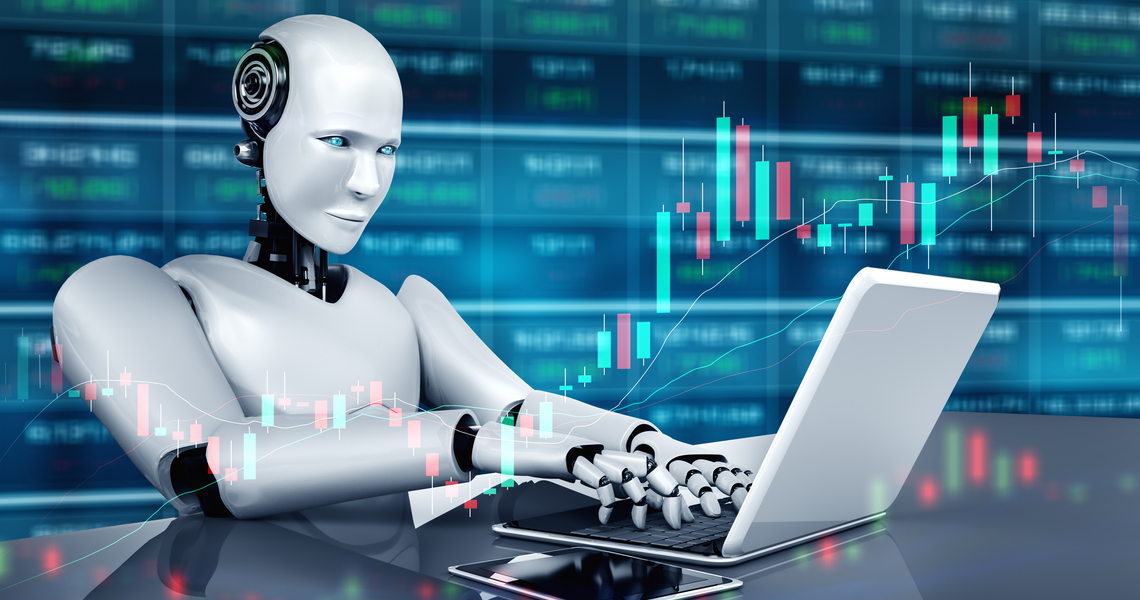Fintech innovations are transforming the landscape of financial markets, especially in areas like stock futures trading. The fusion of financial technology and traditional stock trading has resulted in significant changes in the accessibility, speed, and accuracy of futures trading. This post explores FintechZoom stock futures insights, examining how fintech advancements influence trading strategies, market efficiency, and investor participation.
Fintech’s Role in Enhancing Stock Futures Trading Efficiency

The implementation of fintech in stock futures trading has brought remarkable efficiency, from the speed of transactions to the reduction of human error. FintechZoom highlights that automation, algorithms, and data analysis play critical roles in streamlining the trading process.
Algorithmic Trading and Automated Systems
Algorithmic trading has been one of the most impactful fintech advancements in stock futures trading. Through complex algorithms, trading decisions can be executed in milliseconds, allowing for more timely responses to market fluctuations. FintechZoom notes that algorithmic trading systems analyze vast amounts of data, enabling traders to capitalize on small price differences in the market. By reducing the need for manual intervention, these systems enhance precision and allow for faster, more efficient trades.
Real-Time Data and Predictive Analytics
FintechZoom emphasizes the importance of real-time data and predictive analytics in stock futures trading. Predictive analytics use historical data, economic indicators, and real-time information to generate predictions on future market movements. Access to accurate data enables traders to make more informed decisions and reduces the risk associated with price volatility. As fintech firms continue to develop better data tools, stock futures traders gain a significant advantage in identifying trends and adjusting strategies accordingly.
Expanding Access to Stock Futures Markets through Fintech
One of the notable impacts of fintech in the trading world is the democratization of stock futures trading. Traditionally, futures trading required substantial capital and was predominantly accessed by institutional investors. However, fintech innovations have enabled more retail investors to participate in this market, thanks to user-friendly platforms and mobile accessibility.
Mobile Trading Platforms
Mobile trading platforms have revolutionized stock futures trading by making it accessible to individual investors. FintechZoom explains that these platforms allow investors to monitor and trade futures contracts from anywhere, reducing the barriers previously associated with futures trading. Mobile apps offer features such as real-time tracking, analysis tools, and customizable alerts, making it easier for retail investors to engage with futures trading. This accessibility has broadened participation in the market and created more liquidity, which can benefit all market participants.
Lower Transaction Costs and Improved Transparency
Fintech companies have also reduced transaction costs associated with stock futures trading, which was once a limiting factor for many investors. By minimizing brokerage fees and providing transparent pricing structures, fintech firms make futures trading more affordable. FintechZoom highlights that this transparency has increased trust in the market, as traders have better insight into the costs associated with their trades. Lower costs and increased clarity make stock futures trading more appealing and feasible for a wider range of investors.
The Influence of AI and Machine Learning in Stock Futures Trading

Artificial intelligence (AI) and machine learning (ML) have become central to fintech innovations, providing sophisticated tools for analyzing and predicting stock futures movements. FintechZoom identifies AI-driven insights and automated systems as essential components in advancing the accuracy and reliability of futures trading strategies.
Advanced Trading Signals and AI Models
AI-powered models can process vast amounts of data, identifying patterns that human traders might miss. FintechZoom points out that AI models generate trading signals based on statistical analysis and historical trends, allowing traders to anticipate potential price movements. These AI-driven signals enhance decision-making and reduce reliance on human intuition, which can be prone to errors. By utilizing AI insights, traders can develop more effective strategies, improve timing, and ultimately optimize profitability in futures trading.
Risk Management through Machine Learning
Managing risk is crucial in stock futures trading, given the market’s volatility. Machine learning tools analyze historical data to identify patterns that indicate potential risks. FintechZoom notes that these systems continuously learn from new data, enabling traders to adapt their strategies to minimize losses. With machine learning-driven risk management, traders can implement stop-loss orders, monitor leverage, and adjust positions based on changing market conditions. This approach strengthens risk assessment and helps traders maintain stability in their portfolios.
Blockchain Technology and Security Enhancements in Futures Trading
Blockchain technology has introduced new levels of security and transparency in financial transactions, which are especially valuable in stock futures trading. FintechZoom explores how blockchain’s decentralized nature and encryption capabilities enhance trust and mitigate risks related to data integrity and fraud.
Enhanced Transaction Security
Blockchain’s encryption techniques provide a secure environment for stock futures transactions by ensuring that all data is tamper-proof and transparent. FintechZoom highlights that every transaction on a blockchain is recorded in a secure, decentralized ledger, reducing the risk of unauthorized access or data manipulation. For stock futures traders, this means a higher level of confidence in the accuracy and security of their transactions, which is crucial in a market that relies heavily on data integrity.
Smart Contracts for Automated Settlements
Smart contracts are another blockchain innovation with potential benefits for futures trading. FintechZoom explains that these self-executing contracts automatically enforce the terms of a trade without the need for intermediaries, speeding up the settlement process. In stock futures trading, smart contracts ensure that agreed-upon conditions are met before funds are exchanged, reducing counterparty risk. This automation allows for faster and more secure settlements, which can be advantageous in high-frequency trading scenarios.
Regulatory Considerations and Fintech’s Role in Compliance

The rise of fintech in stock futures trading also brings regulatory considerations, as authorities work to ensure that innovation does not compromise market integrity. FintechZoom points out that regulatory compliance is essential for maintaining investor confidence and ensuring that fintech advancements are implemented responsibly.
Regulatory Technology (RegTech) Solutions
FintechZoom identifies regulatory technology, or RegTech, as a critical component of modern trading platforms. RegTech uses technology to help companies adhere to regulatory requirements, simplifying compliance processes. For stock futures trading, RegTech tools assist traders in monitoring transactions, managing reporting obligations, and ensuring adherence to trading rules. These solutions reduce the risk of non-compliance and streamline regulatory processes, allowing traders to focus on strategy rather than paperwork.
Adapting to Evolving Regulations
As fintech innovations reshape stock futures trading, regulatory bodies continue to adapt their policies. FintechZoom emphasizes the importance of regulatory flexibility in fostering innovation while protecting market participants. The ongoing dialogue between fintech firms and regulators helps ensure that new technologies are developed within a framework that maintains transparency and fairness. Investors should stay informed about regulatory changes, as evolving policies can impact trading strategies and the availability of certain fintech tools.
The Transformative Impact of FintechZoom Stock Futures Insights
The integration of fintech innovations into stock futures trading has undeniably transformed the market, enhancing efficiency, accessibility, and security. FintechZoom’s stock futures insights provide valuable perspectives on how technologies like AI, blockchain, and mobile trading platforms are shaping the future of trading. While fintech has opened up new opportunities, it also brings challenges, such as regulatory compliance and the need for continuous adaptation to technological advancements. For investors and traders, understanding the impact of fintech on stock futures trading is essential for navigating this rapidly evolving landscape. By leveraging fintech tools and staying informed on market trends, participants can optimize their strategies and make informed trading decisions in the dynamic world of stock futures.

